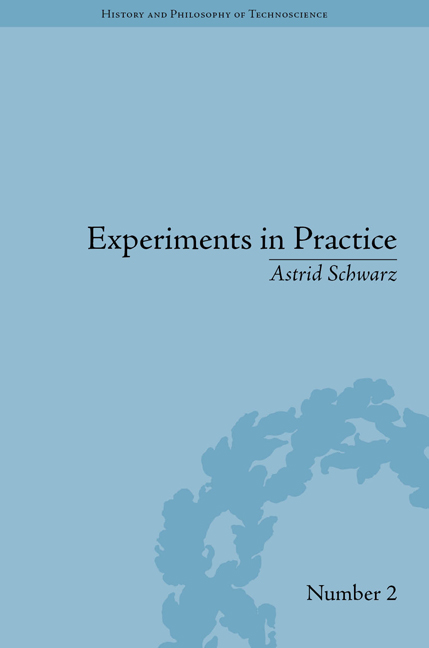Book contents
- Frontmatter
- CONTENTS
- List of Figures
- Introduction: Towards an Experimental Mode in Science, Society and Philosophy
- Part I Questioning the Scientific Method
- Part II Different Modes of Experimentation
- Part III Tirelessly Tinkering with Unruly Conditions
- Part IV Practising Experiments in a World of Environmental Concerns
- Conclusion: Experiments in Practice – the Work of Experiments
- Notes
- Works Cited
- Index
Introduction: Towards an Experimental Mode in Science, Society and Philosophy
- Frontmatter
- CONTENTS
- List of Figures
- Introduction: Towards an Experimental Mode in Science, Society and Philosophy
- Part I Questioning the Scientific Method
- Part II Different Modes of Experimentation
- Part III Tirelessly Tinkering with Unruly Conditions
- Part IV Practising Experiments in a World of Environmental Concerns
- Conclusion: Experiments in Practice – the Work of Experiments
- Notes
- Works Cited
- Index
Summary
For a long time experimentation was perceived as a scientific method that is implemented primarily within the walls of a laboratory. This literal as well as conceptual boundary has since been exceeded: nowadays, experiments are happening everywhere and they might be conducted by just about anybody. Virtually any social, political, artistic or economic action can be conceived as an experiment, and citizens can signal their willingness (or refusal) to be part of an experiment in a variety of ways, be it at the level of society or in questions of personal lifestyle. Evidence of the presence of the experimental mode in society is compelling. Artists make use of experimental techniques ranging from genetic engineering to ambient intelligence environments; scientists and engineers propose large-scale experimentation in order to prevent or at least slow down climate change; in political science and public administration, new policies are framed as experiments in governance or collective experimentation; and political movements such as the ones observed most recently in the Middle East are described as experiments in democracy. Finally, biographies and identities are seen as tentative and provisional, a perspective echoed in the new NBC pilot comedy series My Life as an Experiment.
Evidently, the experiment has become a widely accepted cognitive strategy in the arts and sciences, in technology and politics, in education and in practices of the self.
- Type
- Chapter
- Information
- Experiments in Practice , pp. 1 - 8Publisher: Pickering & ChattoFirst published in: 2014

